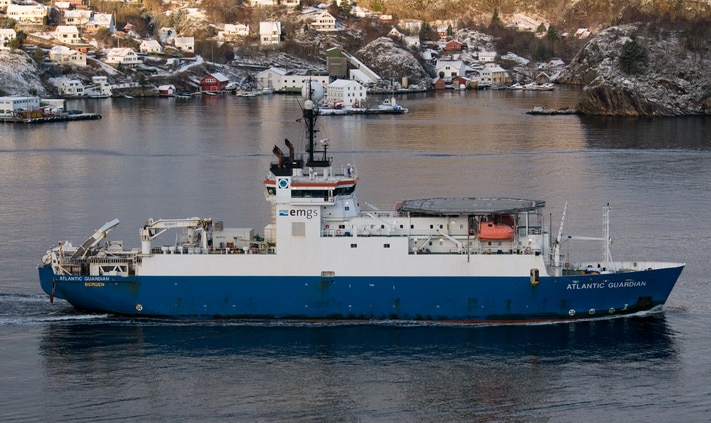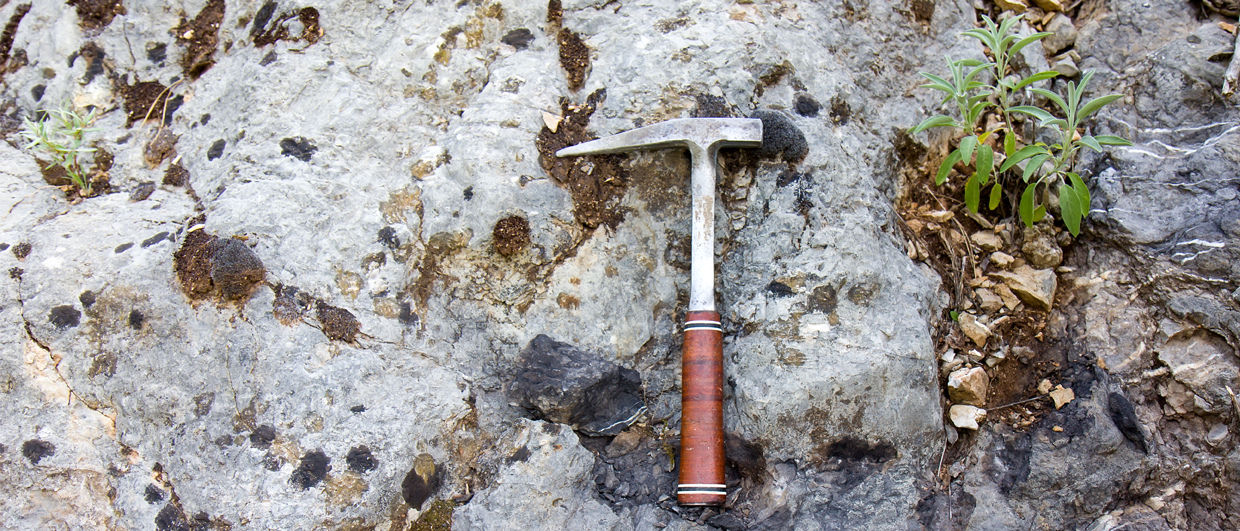Strategically located in the busy Persian Gulf waterways, Bahrain has a rich and fascinating history. Once the seat of the eminent lost civilization of Dilmun, it is described in the ancient Epic of Gilgamesh as an island paradise – ‘the land of Dilmun is holy, the land of Dilmun is pure’ – and is often touted as the original Garden of Eden. Watered by once copious freshwater springs and situated at a central point between Mesopotamia and the Indus Valley trading routes, Bahrain was a verdant island cluster that flourished during the Dilmun Empire 4,000 years ago, largely aided by the Omani copper trade.
However, as the civilization faded following the decline of this trade, Bahrain became absorbed into the Babylonian empire and little was reported from this small Gulf archipelago until Bahrain’s fabled pearls became a much prized commodity. It soon became a thriving centre of the pearling industry and this remained the staple economic income until the 19th century, when Bahrain’s geographical location once more made it the trading centre of the Persian Gulf. As such, Bahrain became a cosmopolitan country, with large numbers of Persians, Omanis and Indians making up the population, alongside the British, as Bahrain during this period became a British protectorate.
The welcoming of foreign nationals has continued to the present day. Bahrain currently has a population of about 800,000, over half of whom are not actually Bahraini citizens. A huge number of expatriates now call Bahrain their home but it is no longer shipping or pearling that has lured them to the tiny Gulf state. It is, of course, the lure of the oil industry and its knock-on service and construction industries that has brought them, all hoping to make their fortunes and careers in the relentless Arabic sun.
Persistence Rewarded
 Well Number 1, drilled in 1932 and the first discovery in the Arabian Gulf. Source: Sinéad Archer
Well Number 1, drilled in 1932 and the first discovery in the Arabian Gulf. Source: Sinéad Archer Although most of the population reside on four islands, interlinked by roads and bridges, Bahrain is in fact an archipelago of 33 islands with a total area only a little larger than the Isle of Man. Source: NASAThe first oil discovery in Bahrain is largely credited to one man, Major Frank Holmes. As a quartermaster in the British Army, posted to the Middle East during World War I, Holmes had heard of seepages in and around the Persian Gulf and was convinced he would discover oil in Bahrain. He was faced with a certain amount of pessimism – one Dr George Lees, a geologist in the Anglo-Persian Oil company went as far as to promise to “drink every drop of oil produced south of Basra”, although records do not show whether he went as far as to attempt his promise. But Holmes was a passionate and convincing man and he persuaded Bahrain’s ruler at the time, Sheikh Hamad Bin Isa Al-Khalifa, to let him drill for oil. Sheikh Hamad stipulated that Holmes could search for oil, on the proviso that he drilled for freshwater first. After painstakingly mapping the whole country for over a year, Holmes found freshwater and was rewarded by the Sheikh with an oil concession in 1925.
Although most of the population reside on four islands, interlinked by roads and bridges, Bahrain is in fact an archipelago of 33 islands with a total area only a little larger than the Isle of Man. Source: NASAThe first oil discovery in Bahrain is largely credited to one man, Major Frank Holmes. As a quartermaster in the British Army, posted to the Middle East during World War I, Holmes had heard of seepages in and around the Persian Gulf and was convinced he would discover oil in Bahrain. He was faced with a certain amount of pessimism – one Dr George Lees, a geologist in the Anglo-Persian Oil company went as far as to promise to “drink every drop of oil produced south of Basra”, although records do not show whether he went as far as to attempt his promise. But Holmes was a passionate and convincing man and he persuaded Bahrain’s ruler at the time, Sheikh Hamad Bin Isa Al-Khalifa, to let him drill for oil. Sheikh Hamad stipulated that Holmes could search for oil, on the proviso that he drilled for freshwater first. After painstakingly mapping the whole country for over a year, Holmes found freshwater and was rewarded by the Sheikh with an oil concession in 1925.
Holmes was keen to attract the support of international oil companies. Although faced with rejection from the Anglo- Persian Oil Company and Standard Oil of NJ, the Bahrain concession finally came to the notice of Standard Oil of CA (SOCAL) and in 1929, SOCAL established BAPCO – the Bahrain Petroleum Company. However, progressing to the drilling stage of the project produced strong opposition from the British. Prior to WWI, they had made an agreement with a number of Sheikhs in the Gulf area, including Bahrain, deeming that all oil exploration in the area would be done by them. Eventually, the British rescinded their opposition and on October 19, 1931, the first log entry to commence drilling was made.
It was not long before everyone’s efforts were rewarded – in 1932, the first discovery of oil was made and soon Well Number 1 had been established near Jebel Dukhan, Bahrain’s highest point – although at just 134m above sea level, ‘high’ might seem somewhat of an exaggeration. By 1934 the first shipments of oil had been sent out, Sheikh Hamad had granted the first mining lease and Bahrain’s oil industry was well underway.
Well Number 1 at first produced 400 bopd, but by 1936 the first refinery had opened its doors, and this rose rapidly. Peaking at about 80,bopd in 1971 the field still produces about 35,000 bopd, and there are plans to increase production with additional drilling. The field, originally known as Awali but now called the Bahrain field, covers an area of about 400 km2, approximately 80% of the main island. The oil reservoirs lie between 380 and 2,000m and gas is found as deep as nearly 4,000m.
An excellent collection of photographs housed at the BAPCO oil museum goes back to the 1930s and it is fascinating to see how methods of oil production have changed. The best example of this is seen in a delightful photo of a team of donkeys which were vital to the transporting of tools, team members and even barrels of oil. Just two years after the BAPCO refinery had been established, the first fuelling station opened in Bahrain’s capital Manama and the first signs of the country’s new revenue stream started to trickle through. The next few years saw great leaps in social and economic development, with hospitals, housing and roads built and a new national education system established, alongside the introduction of tankers and pipelines to the oil production process to help shoulder the donkeys’ load.
Bahrain Declares War
 Mounted camel guard at the refinery, 1938. Source: BAPCOBut serious rumblings far away in Europe were starting to drift towards the little Gulf islands and threaten this exciting time of national growth – rumblings that would turn out to be a world war.
Mounted camel guard at the refinery, 1938. Source: BAPCOBut serious rumblings far away in Europe were starting to drift towards the little Gulf islands and threaten this exciting time of national growth – rumblings that would turn out to be a world war.
In the lead-up to World War II, Germany and its ally Italy had shown increasing interest in acquiring concessions in the Middle East. Although oil by this point was certainly recognized as a lucrative area of development, the location of a German-controlled oil well close to the strategically important Red Sea coastal stretch smacked of more than just economic gain. Concerned, California Standard Oil Company held a meeting with the new German Minister for the region, Dr. Grobbe, to investigate further the rumors that the Germans stood to gain more than just oil with a Middle Eastern concession. In what is now a poignant reflection of the Nazi mind-set, Dr. Grobbe rubbished the rumors, claiming them to be merely Jewish propaganda. California Standard Oil Company and several key players in the Gulf, including Saudi’s Ambassador to London, Sheikh Hafiz Whaba, were far from convinced and felt that the Germans had hoped to enlist the Arabs to their cause.
Instead, rather than bend to German persuasion, the day after Britain declared war on Germany, Bahrain too declared it was at war with the Axis Powers of Germany, Italy and Japan. The impact on oil production was felt immediately – security was tightened around the refinery and, as a precaution, the large waste gas flares were moved as it was felt they could have acted as a marker for the refinery when viewed from the air. The precaution proved judicious, as on October 19, 1940, the Italians attempted to bomb the oil plant in a move designed to make inroads into Middle Eastern control. However, because of the wisely moved flares, the attempt was less than successful – the bombs fell on a petroleum coke pile, killing no one and damaging very little.
Independence in 1971

Finally, after over a century of treaty relationships with Persian Gulf states, in 1968 the British government made the decision to bring these treaties to a close. Whilst for a couple of years Bahrain remained under British protection as part of a failed attempt to create a union of all Gulf states, the Bahraini people finally got their wish and independence was declared on August 15, 1971.
Five years later the Bahraini government began to take control of BAPCO too, with 60% of the company’s shares bought by the government from the key shareholders, SOCAL and Texaco. Soon the Bahrain National Oil Company (BANOCO) had been integrated and by 1980 the government had attained 100% ownership of BAPCO.
The years towards the end of the twentieth century were strong for the oil industry in Bahrain, with high production and the establishment of several additional companies, such as a petroleum marketing business and a gas liquefaction plant.
Moving Forwards
It is well known that the oil reserves in Bahrain are greatly depleted and certainly won’t last forever. In order to secure the country’s economic future, BAPCO have invested heavily in strategies that will enable them to move forward in years to come. Exploration and development has and will continue to play a key part and the company has completed several low sulphur diesel production projects which will enable this stream to become more of a focus in coming years.
The Bahrain petroleum story is far from over and we can be assured that even when it is, this tiny country, which despite its size has managed to have a global presence over the centuries, will always have a bright new chapter ahead of it.
Acknowledgement: Many thanks to Yahya Al-Ansari, BAPCO Head of Exploration, for assistance with this article.





